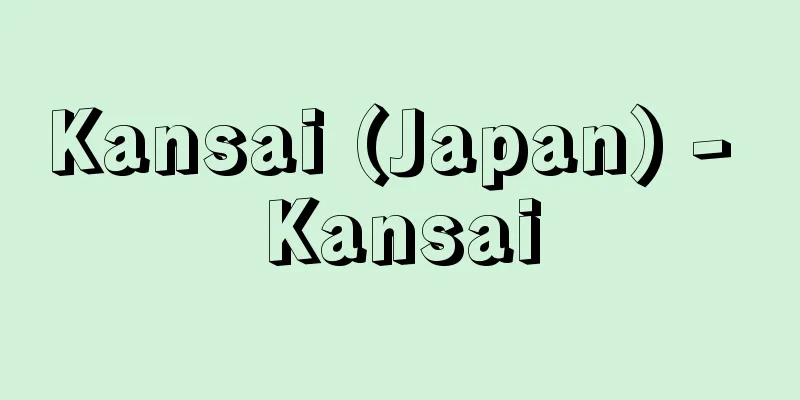Public - Kou

[1] (noun) ① not being biased. not being partial . equality. ※Eihei Dogen Zenji's Seiki (13th century) Governor Seiki " What is called a public official is nothing but private deeds." (Book of Documents - Zhou no Kan) ② something that is clear. not being concealed. something that is obvious. (Book of Han - Wang Pi's Biography) ③ the imperial court. government. government office. government office. public. also, society, world. ※Imperial Rescript on Education - 30th October 1890 (Meiji 23) "In the event of any emergency, volunteer to serve the public." ④ the first of five ranks of nobility in the old peerage system. also used for the ranks of European nobility. duke. ※Peership Law (1907) Article 2 "There are five ranks of nobility: duke, marquis, count, viscount, baron." ⑤ an honorific title for a prime minister or minister. "Kugyou" (kukyo), "sankoku" (three nobility), etc. ※Suga Family Books (around 900), 2: After the Lectures, Giki Shoshinshi: "The face of all living beings is empty , and the prince's will to die for all is revealed, and his soul is burned." ※Konjaku (maybe around 1120), 9: "I was seen by the prince of the East Sea, and he wanted to make me his chamberlain." ⑥ According to the Wangkouka Kihan ( 1926 ), a person who was treated as a member of the imperial family and succeeded the former Korean nobles. It began when Korea's Yi and Yi were made princes by imperial decree at the time of the Japan-Korea annexation. ⑦ A word used to respectfully refer to a wealthy person or a noble person, such as a father or father-in-law. ※Enkeihon Heike (1309-10), 4: "The group of nobles, local samurai, and court officers received 39 people." [Ka Yi - Lun Jisei Sho] [2] [Pronoun] ① Opposite. Used for people of equal status. In the past, it was used for people of higher rank. Nobleman. ※Gyokujinsho (1563), vol. 16: "Wen Shiyue praised Zhao and said that the Duke was a chessman from a noble family." [Shiji - Bai Sazhuan] 2. A man's self-designation. Used when speaking to a subordinate or to speak arrogantly of oneself. Daikou . [Du Mu - Dai Zen'in] [3] [Suffix] 1. Used after the name of a nobleman to show respect. ※Bunka Shūreishū (818), "Poem dedicated to Duke Tonisumi, Vol. 1 (Emperor Saga)" ※Enkeihon Heike (1309-10), vol. 4: "Starting with Lord Moronaga, the Grand Minister of State." 2. Used after the name of a peer or subordinate to show familiarity or slight contempt. Used in modern times. ※Joruri: Butsugozensensha (1722) 2 “Old Master, I bow three times in trembling sympathy, begging for your help.”Public - Shiohoyake... [Public]Source: The Selected Edition of the Japanese Language Dictionary About the Selected Edition of the Japanese Language Dictionary Information |
[1] 〘名〙① かたよらないこと。偏頗(へんぱ)のないこと。平等。※永平道元禅師清規(13C中)知事清規「所レ謂為公者、無二私曲一也」 〔書経‐周官〕② 明らかなこと。かくさないこと。あからさまなこと。〔漢書‐呉王濞伝〕③ 朝廷。公儀。役所。官府。おおやけ。また、社会、世間。※教育に関する勅語‐明治二三年(1890)一〇月三〇日「一旦緩急あれば義勇公に奉じ」④ 旧華族制度五等爵の第一位。ヨーロッパの貴族の階級についても用いる。公爵。※華族令(明治四〇年)(1907)二条「爵は公侯伯子男の五等とす」⑤ 宰相や大臣の尊称。「公卿」「三公」など。※菅家文草(900頃)二・講書之後、戯寄諸進士「勧道諸生空赧レ面、従レ公万死欲レ銷レ魂」※今昔(1120頃か)九「我、東海の公に見えて、以て我を記室とせむと為るに」⑥ 王公家軌範(一九二六)による旧韓国の公家を継いだ皇族待遇者。日韓合併の時、勅旨によって韓国の李および李を公としたのに始まる。⑦ 父、舅など、一般に長者や、貴人を敬っていう語。※延慶本平家(1309‐10)四「群公郷士受領廷尉三十九人」 〔賈誼‐論時政疏〕[2] 〘代名〙① 対称。同等の者に用いる。古くは目上の者に対して用いた。貴公。※玉塵抄(1563)一六「文始悦で趙をほめて公は名家の駒と云たぞ」 〔史記‐鼂錯伝〕② 男子の自称。目下の者に向かって、また自らを尊大にいうときに用いた。乃公(だいこう)。〔杜牧‐題禅院〕[3] 〘接尾〙① 貴人の姓名などに添えて敬意を表わす。※文華秀麗集(818)中「答二澄公奉献詩一〈嵯峨天皇〉」※延慶本平家(1309‐10)四「太政大臣師長公を始として」② 同輩、もしくは目下の者の名前に付けて、親しさや、軽い軽蔑の意を表わす。近世以降の用法。※浄瑠璃・仏御前扇車(1722)二「長公、お慈悲お助けと顫(ふろ)ひ戦慄(わなな)き三拝答拝」
おおやけ‐し おほやけ‥【公】出典 精選版 日本国語大辞典精選版 日本国語大辞典について 情報 |
Recommend
Adour (river)
A river in southwestern France. It is 336 km long....
Takatsukuba Collection - Takatsukuba Collection
A collection of haiku poems. Compiled by Saimu. Pu...
Volcanic bomb - Kazandan (English spelling) bomb
This refers to volcanic lapilli and volcanic block...
Yoroboshi - Yoroboshi
A Noh piece. Also called "Yoroboshi." T...
Hyperacidity - Hyperacidity
In the past, acid concentration was used as an in...
glioma
… On the other hand, glioblastoma multiforme (11....
Saint John
A port city in the southern part of New Brunswick,...
Ahmad Bukar (English spelling)
…His territory spread especially eastward, reachi...
Whorl
A fingerprint with a whorl or ring ridge in the ce...
Lama Temple
A Tibetan-style temple unique to Lamaism. As Lamai...
Ogino theory - Ogino theory
This theory was announced by Ogino Kyusaku (1882-1...
weather minimum
…As aircraft become faster and larger and informa...
Karelian Isthmus (English spelling) Karel'skiy Peresheek
An isthmus in the western part of the Russian Fed...
Artemisia princeps (English spelling) Artemisiaprinceps
…[Hiroshi Aramata]. … *Some of the terminology th...
Mausoleum of Galla Placidia
Located adjacent to the north side of the Basilica...









